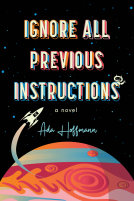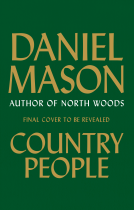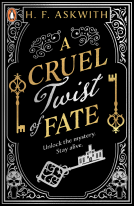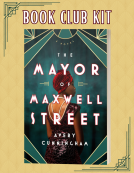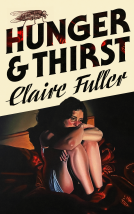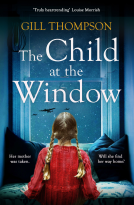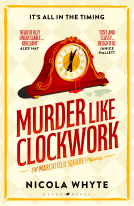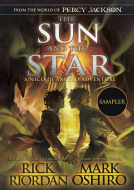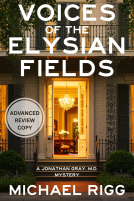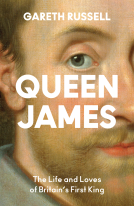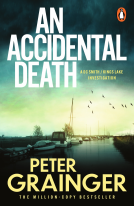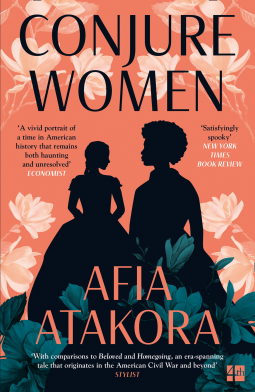
Conjure Women
by Afia Atakora
This title was previously available on NetGalley and is now archived.
Send NetGalley books directly to your Kindle or Kindle app
1
To read on a Kindle or Kindle app, please add kindle@netgalley.com as an approved email address to receive files in your Amazon account. Click here for step-by-step instructions.
2
Also find your Kindle email address within your Amazon account, and enter it here.
Pub Date 7 Apr 2020 | Archive Date 6 May 2021
4th Estate | Fourth Estate
Description
You’re free to decide your future. But how do you escape the ghosts of the past?
‘After Miss May Belle died, they said the river swelled up fit to weep for her. Living water, it swallowed up the old, proud stalks of cotton. And Miss Rue, the only one left to sustain her mama’s curse, found herself afeared of what the river water might dredge up, secret things better left hidden.’
The pale-skinned, black-eyed baby is a bad omen. That’s one thing the people on the old plantation are sure of. The other is that Miss Rue – midwife, healer, crafter of curses – will know what to do.
But for once Rue doesn’t know. Times have changed since her mother Miss May Belle held the power to influence the life and death of her fellow slaves. Freedom has come. The master’s Big House lies in ruins. But this new world brings new dangers, and Rue’s old magic may be no match for them.
When sickness sweeps across her tight-knit community, Rue finds herself the focus of suspicion. What secrets does she keep amidst the charred remains of the Big House? Which spells has she conjured to threaten their children? And why is she so wary of the charismatic preacher man who promises to save them all?
Rue understands fear. It has shaped her life and her mother’s before her. And now she knows she must face her fears – and her ghosts – to find a new way forward for herself and her people.
Conjure Women is a story of the lengths we’ll go to save the ones we love, from a stunning new voice in fiction.
Available Editions
| EDITION | Ebook |
| ISBN | 9780008293932 |
| PRICE | £4.99 (GBP) |
| PAGES | 400 |
Average rating from 88 members
Featured Reviews
I was so glad to have early access to this beautiful novel. Such gorgeous writing, full of life and knowing. Highly recommended
'She stopped again at the dolls, like to see if they had observed what she’d done. They hadn’t moved from their faithful vigil, staring blind and straight out at the dust motes Rue’d unsettled. “You’re not so pretty,” Rue whispered at them. “My mama’s gon’ make me a doll baby. One that smiles. Black. Sweet as can be.”
The novel begins when Rue delivers a baby whose white, scaled skin and black eyes identify him as a bad omen. The people on the old plantation are convinced that this child is responsible for the sickness that strikes down the other children of the community and Rue's affinity for the child relegates her from trusted, revered healer to suspicious, ungodly witch. But this isn't the only force for change acting on this Reconstruction era Black community: their former masters have all died; "freedom" has arrived and so has a charismatic preacher...
I know that, collectively, we are weary of slavery narratives, but there are several recent novels that focus on what survives rather than simply raw survival, honouring ancestry not merely sensationalising trauma. This is one of them. I was reminded to read this in a friend's Kwanzaa post in which she featured the novel in celebration of Ujima and relates the principal of collective work to the documentation and passing on of ancestral knowledge - seen in the novel through Atakora's descriptions of Rue, her mother and the service they provide their community, and seen in real life through the work of our historic and modern Black feminist writers and archivists.
It has been said that CONJURE WOMEN has echoes of HOMEGOING, BELOVED and THE CONFESSIONS OF FRANNIE LANGTON. I definitely see that. Atakora's writing has you in the grips of anticipation, each held breath is a cry and a prayer. This is a glorious reminder of the importance of healing, forgiveness, redemption and truly living. Its time-travelling narrative and beautiful, poetic prose is the perfect vessel for such glorious, multi-generational literary fiction.
 Hannah S, Reviewer
Hannah S, Reviewer
Conjure Women is a tale of intertwined lives that is masterfully wrapped around a secure understanding of history. So many tales and experiences are told through one voice, which makes this story rich and heady.
Somehow this book manages to tie together the ends of a sweeping story that encompasses the experiences of different women during the time of slavery in the Deep South, as well as how communities adapted afterwards to 'freedom' following the Civil War.
There is so much rich detail in this novel, as each character's knowledge, life and experience forms part of a tapestry of lives that are artfully drawn together under a backdrop of superstition.
This novel largely focuses on Rue, who has inherited the responsibility of being healer for her small community of ex-slaves from her strong-spirited and powerful mother, Miss May Belle. Rue understands that although healing itself is natural, much of what she does can be tied up in curses, in the land around her and in what she has inherited from her mother.
Bound together with Rue are the stories of May Belle and of Varina, the Master's daughter, who sees Rue as plaything, companion and object.
This a community full of secrets as they struggle to survive before and after the Civil War, as well as the secrets that they now hold that tie them all together.
What was a pleasure to read, alongside the strong clear voices of the characters, who take action in the only ways they know how, are the images and details of the natural world around the community. Quite rightfully, these aren't always explained or justified - they are just there for the reader in order to immerse you further in this harsh, warm and no-nonsense world.
Sometimes the build-up to an ending can feel forced, the reader spotting what's going to happen long before it does, because that's the way that stories work. Instead, here, even if you knew what was likely, there was still so much more detail to the outcome that it felt more like a tale being told, than one being made.
 Ali T, Reviewer
Ali T, Reviewer
This excellent narrative is centred on Rue, one of the 'conjure' women of the title, who works as midwife and herbalist for the other enslaved people on a plantation in 19th century America. When Bean, a pale-skinned child with strangely dark eyes is born, Rue is horrified: 'She felt then that she knew him for what he was, a secret retribution for a long-ago crime, the punishment she had been dreading.'. It is from this moment that the story begins to unfold.
In this wonderful debut novel, Afia Atakora has created strong women characters who live and breathe. Rue, her mother, Miss May Belle and a white woman, Varina, daughter of the owner of the plantation, are complex and conflicted and all linked in ways that are gradually revealed through the telling of the story. These are characters who will stay with you.
'Conjure Women' is a skillfully realised and rewarding read, set against the background of the Civil War and emancipation; and moving back and forward from 'Slavery time' to 'Exodus' to 'Wartime' Perhaps a little overlong and slow at times, this is a very ambitious novel. for a debut; and brings to life the harsh realities of living under terrible oppression and violence.
Afia Atakora could well be describing her own writing when she says: 'The words blossomed black out of his pen like fast, elegant little miracles.' This is writing of the highest calibre and I can't wait to read more from this author.
Readers who liked this book also liked:
We Are Bookish
Historical Fiction, Literary Fiction, Multicultural Interest
Francesca De Tores
General Fiction (Adult)
Rick Riordan; Mark Oshiro
Children's Fiction, LGBTQIA, Teens & YA
